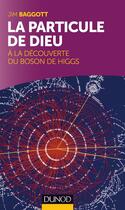-
Nombre de pages : (-)
-
Collection :
(-)
-
Genre :
(-)
-
Thème :
Non attribué
-
Prix littéraire(s) :
(-)
Résumé:
The hunt for the Higgs particle has involved the biggest, most expensive experiment ever. So exactly what is this particle? Why does it matter so much? What does it tell us about the Universe? Has the discovery announced on 4 July 2012 finished the search? And was finding it really worth all the... Voir plus
The hunt for the Higgs particle has involved the biggest, most expensive experiment ever. So exactly what is this particle? Why does it matter so much? What does it tell us about the Universe? Has the discovery announced on 4 July 2012 finished the search? And was finding it really worth all the effort?
The short answer is yes. The Higgs field is proposed as the way in which particles gain mass - a fundamental property of matter. It's the strongest indicator yet that the Standard Model of physics really does reflect the basic building blocks of our Universe. Little wonder the hunt and discovery of this new particle has produced such intense media interest.
Here, Jim Baggott explains the science behind the discovery, looking at how the concept of a Higgs field was invented, how the vast experiment was carried out, and its implications on our understanding of all mass in the Universe.
The book was written over the eighteen months of the CERN Large Hadron Collider experiment, with its final chapter rounded off on the day of the announcement 'that a particle consistent with the standard model Higgs boson has been discovered.
Donner votre avis
















